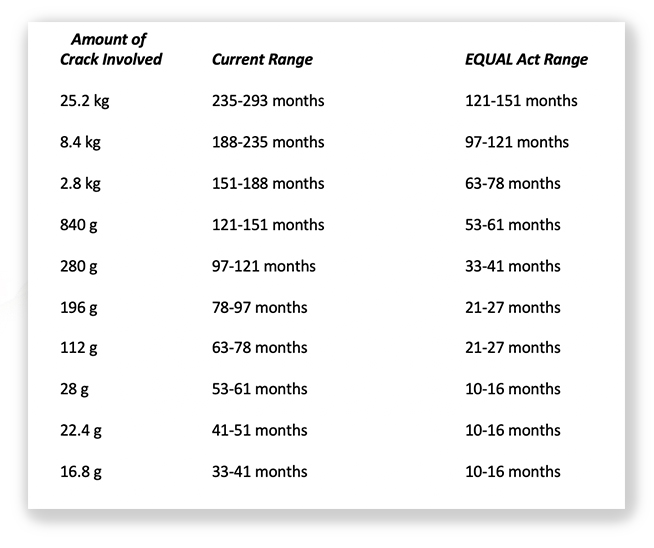We post news and comment on federal criminal justice issues, focused primarily on trial and post-conviction matters, legislative initiatives, and sentencing issues.

BOP, ALREADY A ‘HOTBED OF ABUSE’, DITHERS WHILE INMATES SUFFER, INSPECTOR GENERAL SAYS
Turkeys may not be the only creatures with heads on the chopping block.
 US Senate Majority Whip Dick Durbin (D-Illinois), chairman of the Senate Judiciary Committee, last Tuesday publicly demanded that Attorney General Merrick Garland fire Federal Bureau of Prisons Director Michael Carvajal, who was appointed during the Trump Administration.
US Senate Majority Whip Dick Durbin (D-Illinois), chairman of the Senate Judiciary Committee, last Tuesday publicly demanded that Attorney General Merrick Garland fire Federal Bureau of Prisons Director Michael Carvajal, who was appointed during the Trump Administration.
Durbin’s call came after the Associated Press reported that since the beginning of 2019, over 100 federal prison workers have been arrested, convicted or sentenced for crimes, including the warden of FCI Dublin – a women’s prison in central California – indicted for sexual abuse, an associate warden at MDC Brooklyn charged with killing her husband last August, guards taking cash to smuggle drugs and weapons, and supervisors stealing property such as tires and tractors.
The Associated Press said its investigation revealed that the BOP “is a hotbed of abuse, graft and corruption, and has turned a blind eye to employees accused of misconduct. In some cases, the agency has failed to suspend officers who themselves had been arrested for crimes.” While the BOP workforce amounts to one-third of Dept of Justice personnel, its employees account for two-thirds of the criminal cases against DOJ workers in recent years. Of 41 DOJ employee arrests this year, 28 were of BOP employees or contractors.
The AP report was too much for Durbin, who said,
Director Carvajal… has overseen a series of mounting crises, including failing to protect BOP staff and inmates from the COVID-19 pandemic,failing to address chronic understaffing, failing to implement the landmark First Step Act, and more. It is past time for Attorney General Garland to replace Director Carvajal with a reform-minded Director who is not a product of the BOP bureaucracy.
 On Wednesday, the DOJ Inspector General put an exclamation point on Durbin’s well-justified rant. An IG report found that three years after passage of the First Step Act, the BOP has yet to implement one of the linchpins of the legislation, to reduce recidivism by giving prisoners incentives to successfully certain educational programs and productive activities. The primary holdup? BOP management and union staff have been unable to come up with ground rules for meetings to discuss how the educational and incentives programs should be implemented.
On Wednesday, the DOJ Inspector General put an exclamation point on Durbin’s well-justified rant. An IG report found that three years after passage of the First Step Act, the BOP has yet to implement one of the linchpins of the legislation, to reduce recidivism by giving prisoners incentives to successfully certain educational programs and productive activities. The primary holdup? BOP management and union staff have been unable to come up with ground rules for meetings to discuss how the educational and incentives programs should be implemented.
Remember how the 1968 Paris Peace Talks were stalled for months over whether the table over which “official conversations” would be held should be round or rectangular? Yeah, this has been something like that. BOP’s national union won’t conduct formal policy negotiations on Zoom, but rather demanded in-person negotiations. BOP management refused. The disagreement has resulted in a lack of formal policy negotiations for a period of 20 months, which has stalled the development of more than 30 BOP policies, about half of which were created or revised because of First Step.
The First Step Act requires the BOP to provide Evidence-Based Recidivism Reduction (EBRR) programs and productive activities to all inmates in its custody no later than January 15, 2022. The BOP has taken the position that this means that no credits need be awarded until then. No one believes that. In litigation, even the United States Attorney’s Offices defending the BOP have abandoned that tortured interpretation of the Act. The IG’s report said:
In August 2021, the BOP told us that the [First Step Act] contemplates a phased-in approach to time credit implementation and requires that all inmates be assigned to programming based on their assessments no later than January 15, 2022. As a result, the BOP stated that “implementation of time credits is fully permissible as a phased approach.” While we agree that the FSA affords the BOP a 2-year phase-in period to provide all inmates with EBRR programs and productive activities, we also note that the phase-in statute makes no reference to delaying the use of incentives and rewards, including time credits. Instead, the statute states that by January 15, 2020, the BOP “may offer to prisoners who successfully participate in such programs and activities [with] incentives and rewards.”
As a result of the BOP’s failure to talk to its union, as many as 60,000 inmates have not properly received earned-time credits for successful completion of First Step Act’s recidivism programs, the Department of Justice inspector general found. “We are concerned that the delay in applying earned time credits may negatively affect inmates who have earned a reduction in their sentence or an earlier placement in the community,” the report stated.
 Inmates around the country have filed petitions for habeas corpus against the BOP, demanding credit, with mixed results. Even now, the BOP stands firm. The courts are wrong. The US Attorneys are wrong. And, the latest, the Inspector General is wrong:
Inmates around the country have filed petitions for habeas corpus against the BOP, demanding credit, with mixed results. Even now, the BOP stands firm. The courts are wrong. The US Attorneys are wrong. And, the latest, the Inspector General is wrong:
BOP disagrees with OIG’s characterization of the agency’s delayed implementation of FSA requirements… Although the COVID- 19 pandemic has created unprecedented challenges for the federal government, BOP has taken significant steps in implementing the FSA’s requirements, consistent with the FSA’s phased approach, and has complied with all mandatory statutory guidelines to-date.
Happy Thanksgiving, Director Carvajal. Use some of the long weekend to dust off your resume.
Press release, Durbin Calls On AG Garland To Dismiss BOP Director Carvajal (November 16)
Associated Press, Workers at federal prisons are committing some of the crimes (November 14, 2021)
Associated Press, Durbin calls for Garland to remove federal prisons director (November 17, 2021)
Forbes, Office of Inspector General Critical of Federal Prison Implementation of First Step Act (November 17, 2021)
ABC, DOJ finds Bureau of Prisons failed to apply earned time credits to 60,000 inmates (November 17, 2021)
Dept of Justice, Office of Inspector General, Management Advisory Memorandum 22-007 (November 16, 2021)
– Thomas L. Root




























